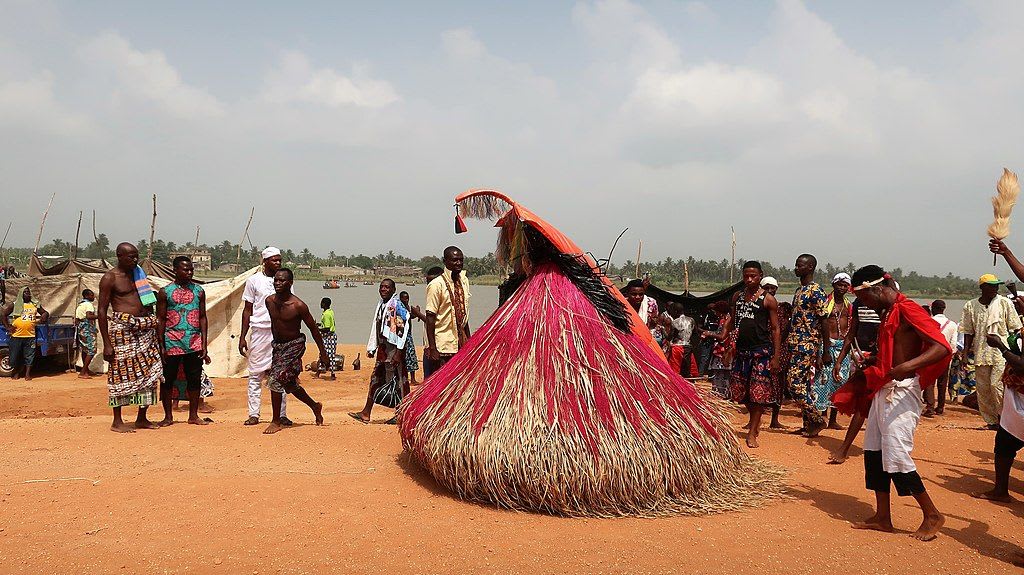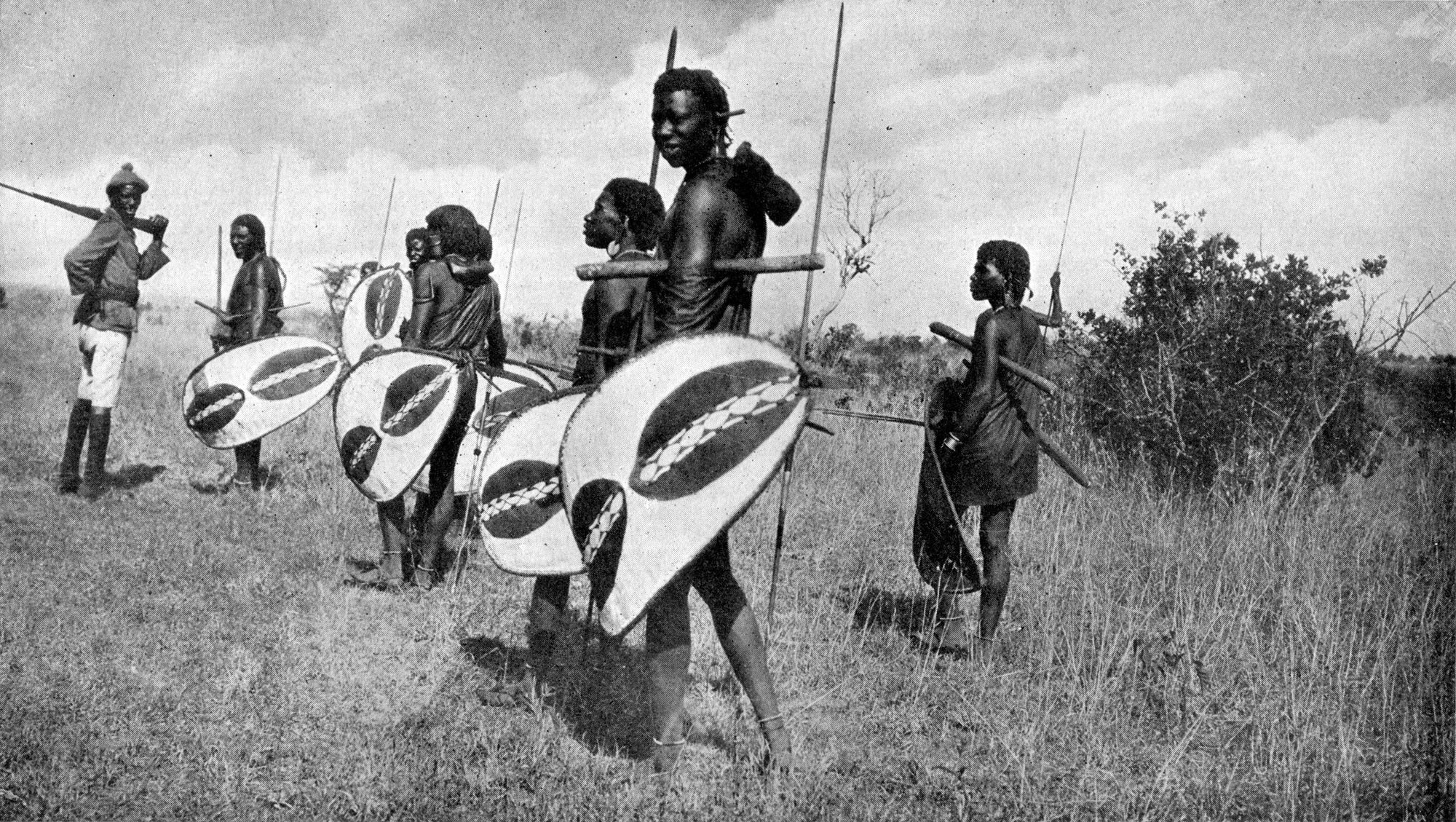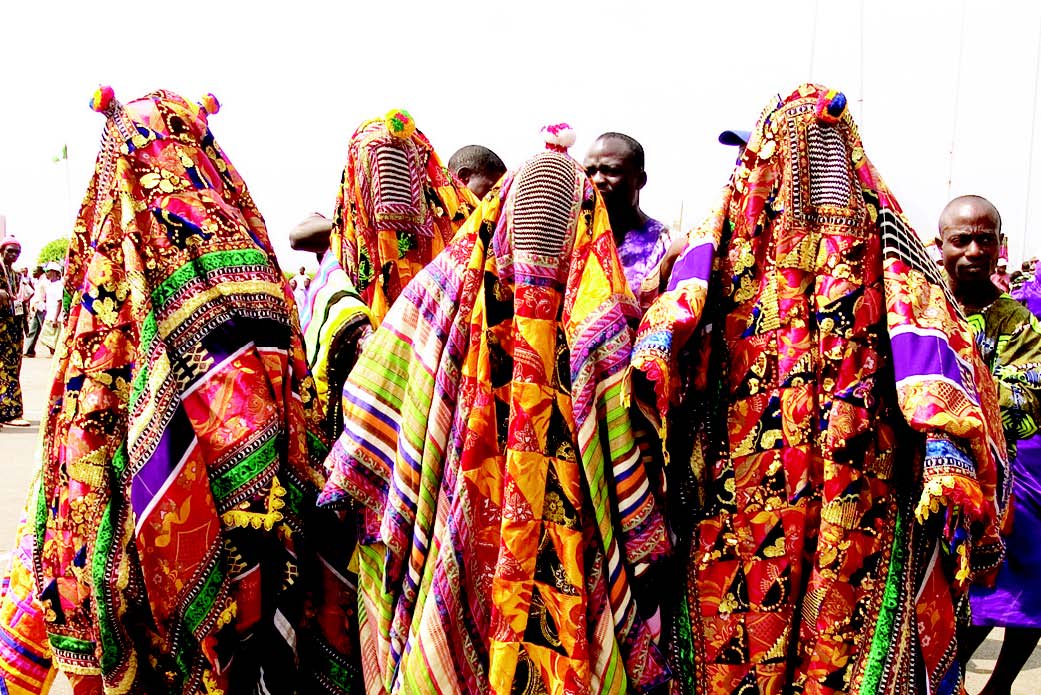The Voodoo festival is an annual festival in Benin, where locals celebrate in tribute to the deities of Voodoo, the indigenous religion that worships natural spirits and reveres ancestors.
Voodoo is practiced by around 12% of the West African country’s population of about 13 million people. However, much emphasis is placed on it because the authorities also want to use these deep spiritual roots and extraordinary customs to boost tourism and consequently, Benin’s agriculture-dependent economy.
The Voodoo festival—which the native people of Benin call Fête du Vodoun, in French— is a public holiday that celebrates the nations’ history surrounding the West African religion. The celebration is held annually on January the 10th, throughout the country, but mostly in the city of Ouidah.
Voodoo was introduced to Cuba and Haiti, where it was blended with Catholicism, by slaves captured and sold by the kingdom of Dahomey. It was originally called vodoun in Benin and Togo, which meant “that which is hidden” and/or “mysterious.”
Voodoo recognizes the existence of various deities and the higher Mawu—creator goddess. Voodoo priests are consulted for their ability to communicate with certain spirits and to intercede with them. This communication takes place in many cases through spirit possession and often involves the offering of sacrifices of palm wine, chickens and cattle.
During the Marxist period under President Mathieu Kérékou’s regime, voodoo was banned, but in 1996 it was formally recognized as an official religion. Since then, the 10thof January has been considered a national religious holiday which Ouidah, a coastal city in Benin, hosts. Ceremonies, sacrifices, songs, dances and large banquets are held in the presence of the country’s most influential religious and political figures. A significant proportion of the Beninese follow the voodoo religion, so many aspects of it spill over into the wider culture.
The Voodoo Festival is a big, colorful and dazzling festival, with a whirlwind of egugun (spirits of the reborn) and zangbeto (spirits/sentinel dedicated to public order). These entities are major tourist pulls, attracting the faithful and curious from all over the world, yet still retaining their sacredness. More than a thousand people have been known to gather in Ouidah to honor the 500-year-old religion.
According to Daagbo Houhon Houna II, a voodoo spiritual leader, “People come in increasing numbers for the festival, because voodoo is no longer considered sorcery, it is no longer barbarism. All the voodoo churches come to Ouidah, people dress up as gods and make-believe that they become that god. So, you get a particular sect of voodoo and take on the characteristics and personalities of the many different gods.”
Flora Domenis, a Nigerian therapist who travelled to this year’s festival with friends from the Caribbean had this to say: “I have some special interest in these kinds of traditions because of the shared African heritage, that is mine and theirs. Voodoo is extraordinary and we as Africans must do everything we can to promote this culture both in Africa and internationally. I can remember when voodoo was a no-go area, a topic of great taboo and gloom and doom… to see it as a religious and widely celebrated tradition like this is so amazing!”
As part of its development plan, the government of Benin has set aside a stretch of beachfront between major city Cotonou and Oiudah as a special tourism zone for visitors. The government also hopes these visitors will be keen to visit historical slave sites too.
Benin is a small country, so most small group tours taken during the voodoo festival also venture further afield;that is, both in Benin as well as neighboring Togo and Ghana. In Ouidah, one can learn about voodoo and the Python Temple, which is inhabited by over 60 sacred snakes, as well as the Kpasse sacred forest which is filled with statues of voodoo gods









